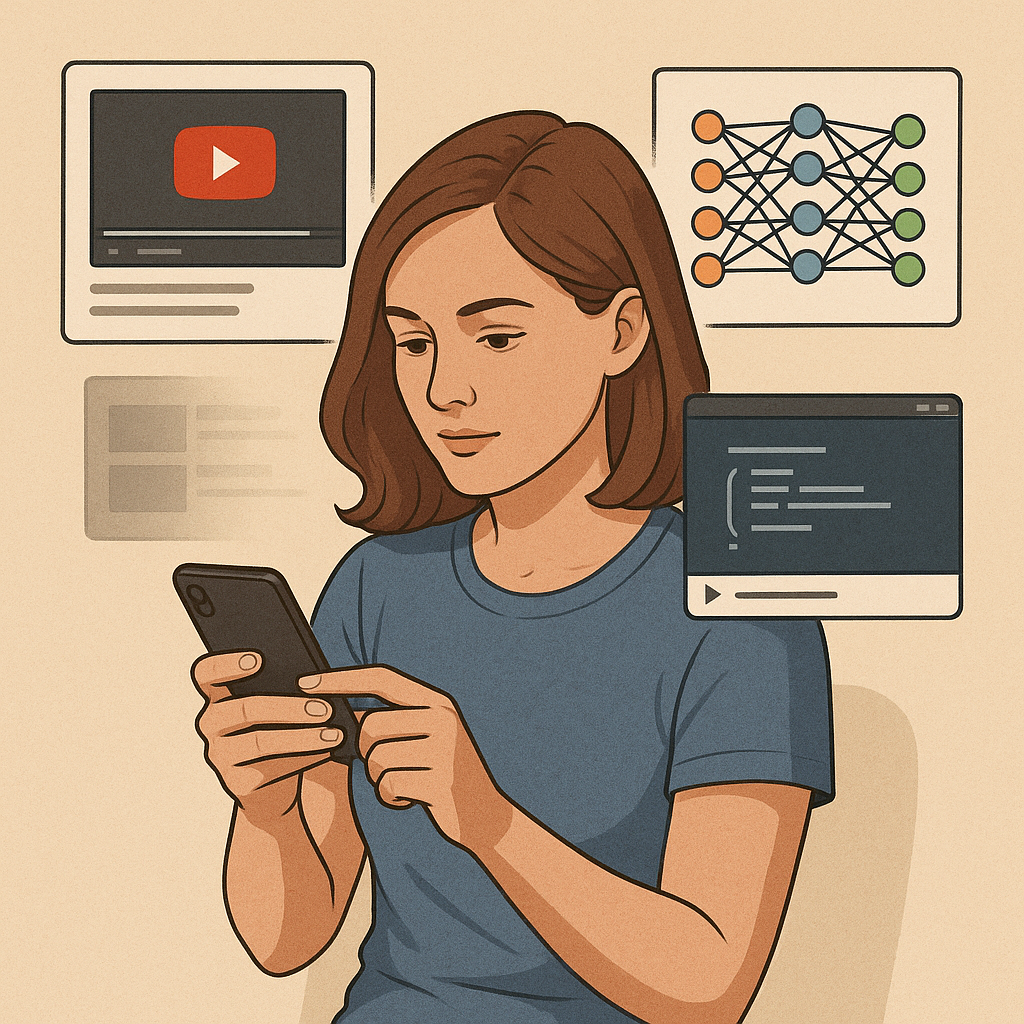Microlearning is the new way to learn
Published 5 months ago

In almost every interview, I get asked the same question: How do you keep up with the latest technologies? How do you learn?
I always find this question tricky. Do they expect me to say I read books all the time? Or that I go to conferences abroad? Or that I follow every newsletter? What is the "correct" answer?
Over time, I've realized what works for me. And that's what I answer now: microlearning.
The problem with learning today
Our phones have changed how we consume information. They're addictive. We scroll at the traffic light, while brushing our teeth, or whenever there's a free moment. Even if you're off social media, you probably still scroll—news, reddit, or something else. And if you're not affected at all, I admire you. Please message me on LinkedIn and tell me your secret.
For the rest of us, especially those working in tech, it's impossible not to consume huge amounts of information daily. And when your field moves as fast as AI, staying updated feels like a never-ending race. Every two months there's a new tool, framework, or model that everyone jumps on. If you don't, you fall behind.
My answer: microlearning
Microlearning means using those short bursts of scrolling time to pick up small lessons. You teach the algorithm to feed you useful content. For me, that means reddit, TikTok, YouTube, and newsletters.
YouTube deserves a special mention. Short-form videos—10 to 20 minutes long—are one of the best ways to learn. A good visual explanation of a topic can go much further than reading. For example, seeing how transformers work in a YouTube tutorial has been the clearest and most effective way for me to understand them.
I also have ADHD, so I learn best by doing. I don't read a whole manual before running a command. I test things directly. I learn in short, hands-on chunks.
It's the same with new trends. You don't learn a programming language in a month, just like you don't learn Spanish fluently in a month. But you can catch a new trend piece by piece.
For example, when AI agents started trending, I first saw it in a newsletter—Andrew Ng presenting about it. Then frameworks started showing up on GitHub. My feeds on TikTok, YouTube, and reddit filled with tutorials, news, and discussions. And over six months, I had absorbed what I needed to know about AI agents.
That's microlearning: small, daily doses that build into knowledge.
When microlearning isn't enough
Of course, some topics need deep study. If you want to understand how ChatGPT works under the hood, you'll need to sit down with a book on transformer architectures. Microlearning won't give you that depth.
But for keeping up with fast-moving trends, it's the best tool I know. It matches how our brains and phones already work—short, dopamine-driven bursts of attention.
Final thought
So when interviewers ask me how I learn, my answer is simple: microlearning. That's how I keep up.
What about you? How do you learn today?
